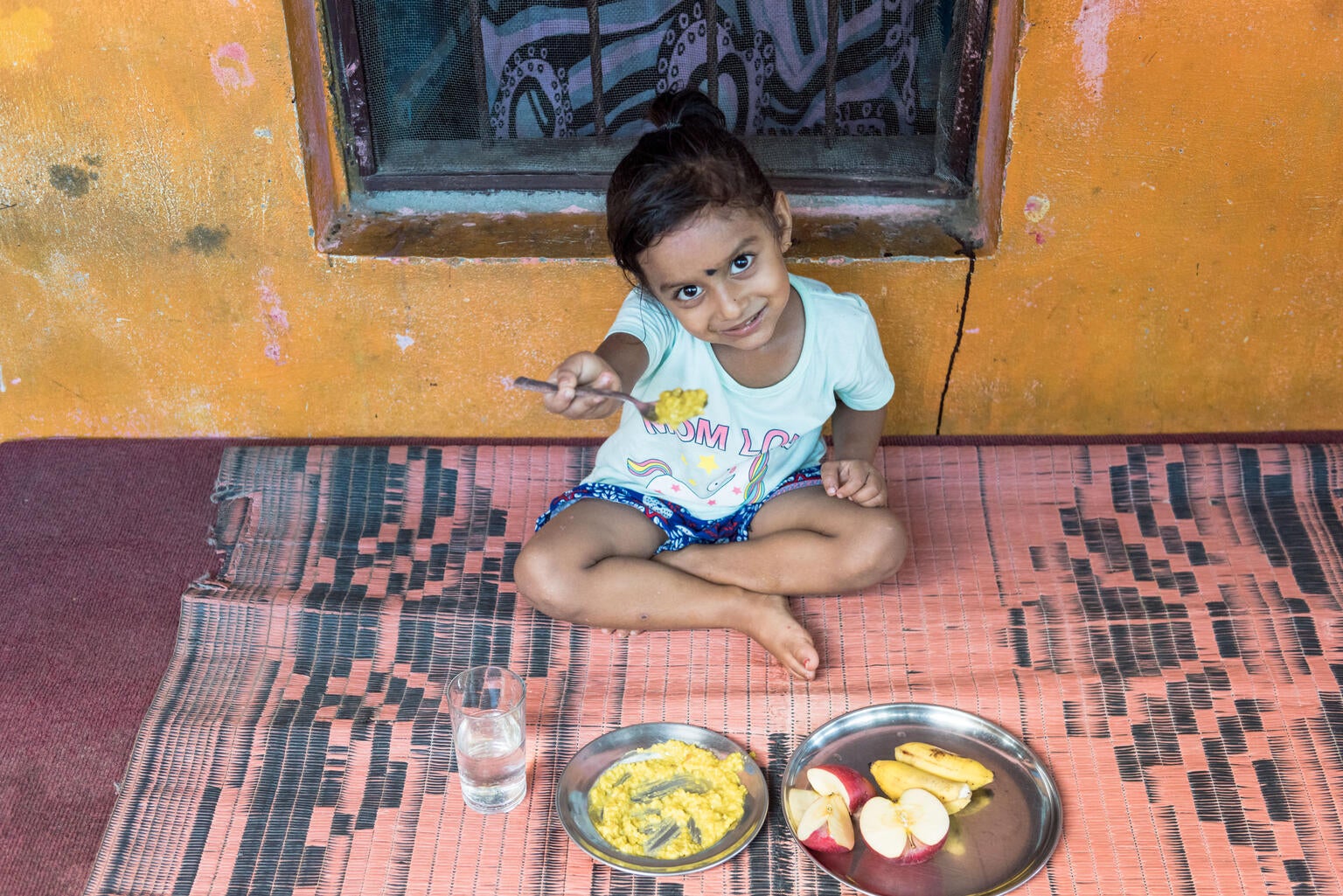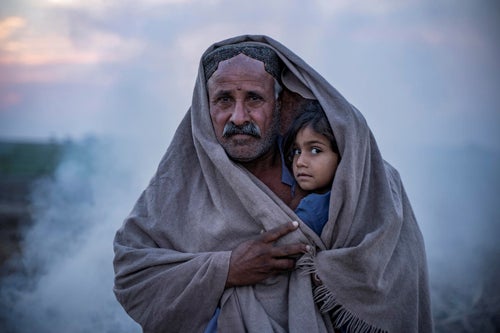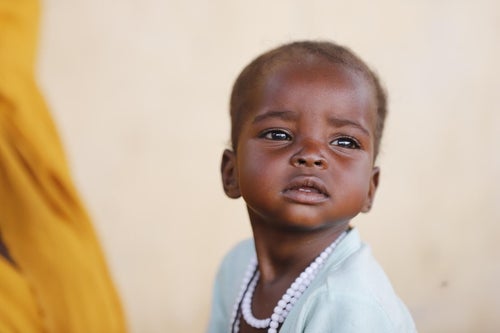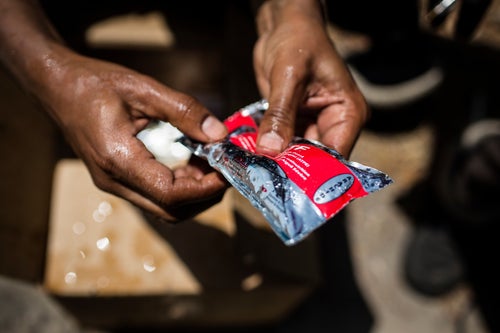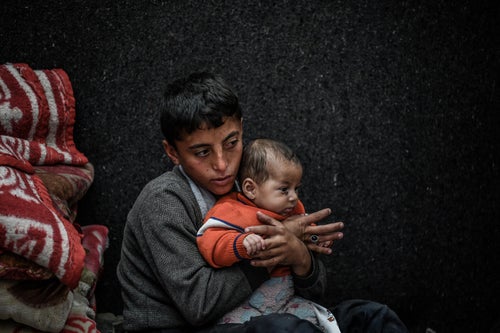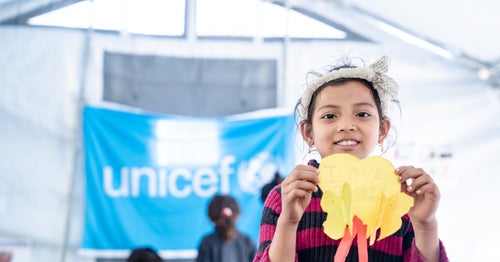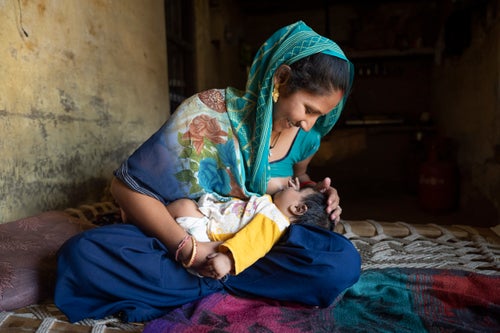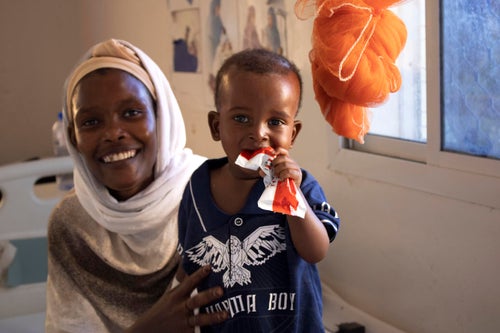Only a few months ago, Girisha was diagnosed with severe acute malnutrition and was in a UNICEF-supported nutritional rehabilitation home for two months to receive treatment. She stayed there with her mum, 25-year-old Geeta.
Nutritional rehabilitation homes are places where malnourished children are holistically treated through therapeutic food and family health education programs, on topics like nutrition and childcare. Thanks to our generous donors, Mum Geeta was counselled on sustainable ways to continue providing her daughter a balanced, healthy diet at home.
“I learned a lot after staying at the rehabilitation home,” says Geeta. “Before that I wasn’t fully aware of how to take care of my daughter – what to feed her, when to feed her. They taught us a great deal.”
"I felt like there was so much I hadn’t known before getting there. Things like feeding techniques, ways to cook food, what kind of combinations to go for, how often to feed her, all of that.”
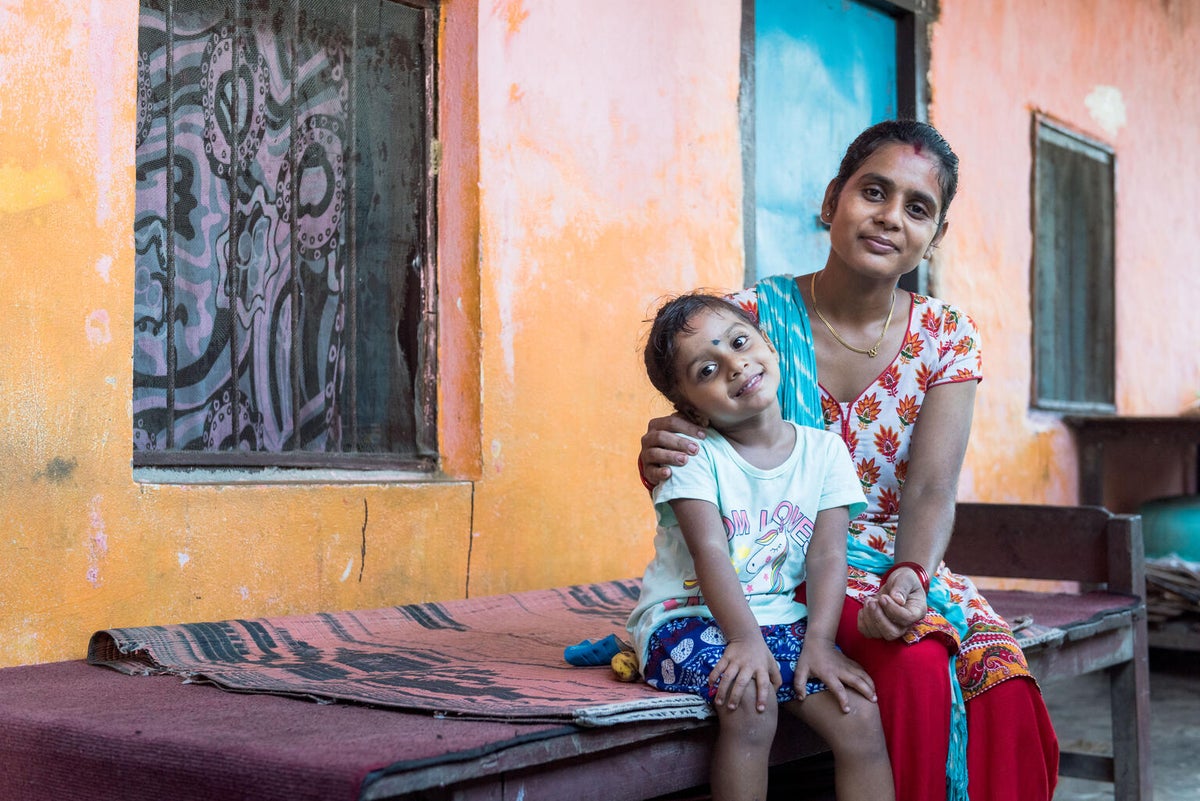
Little Girisha was eventually discharged after showing the necessary increase in weight and overall improvement in health. In remote and rural communities around the world, knowledge about adequate nutrition or access to nutritious foods can be limited, causing higher rates of malnutrition.
Parents often do not have the support networks or access to nutrition advice they need. Geeta says she tries her best to ensure her daughter gets a balanced meal.
“I try to buy and take things back home when I visit my parents in town.”
“My mother, for example, prepares and sends us stocks of lito (nutritional flour). I buy as many healthy food items as I can, but because our home is in a remote area with not a lot of shops around, it’s not always easy.”
According to the Global Nutrition Report 2021, 31.5 per cent of children under five years old in Nepal are affected by stunting, a figure that is higher than the average for the Asia region.
However, due to initiatives like the nutritional rehabilitation homes, the numbers are significantly reducing when compared to a 56 per cent of children stunting in the year 2000.
This where UNICEF plays a big role. For decades, UNICEF has been supporting the Government of Nepal in formulating and implementing scalable and comprehensive nutritional strategies, such as support for nutritional rehabilitation homes, which were first developed by the Nepal Youth Foundation.
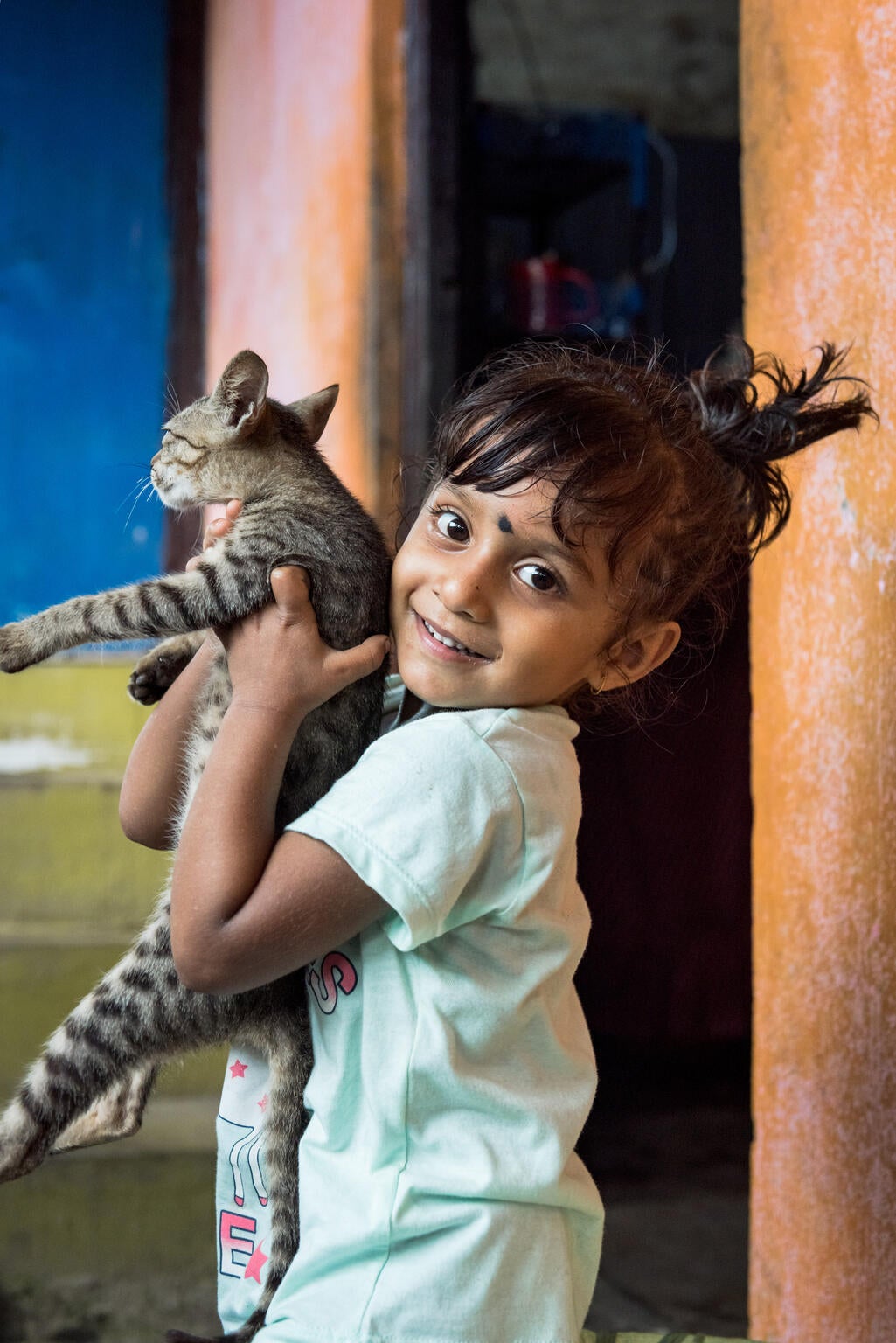
Thanks to people like you, little Girisha has not only regained her health but is thriving, full of life and excited to eat every day.
“Before we took her to get treated for malnutrition, Girisha didn’t eat very well,” says Geeta.
“But after that, she developed a taste for jaulo (a traditional rice and lentil meal), as well as fruits like banana, which she is very fond of. Actually, she’s not that fussy about what she eats at all.”
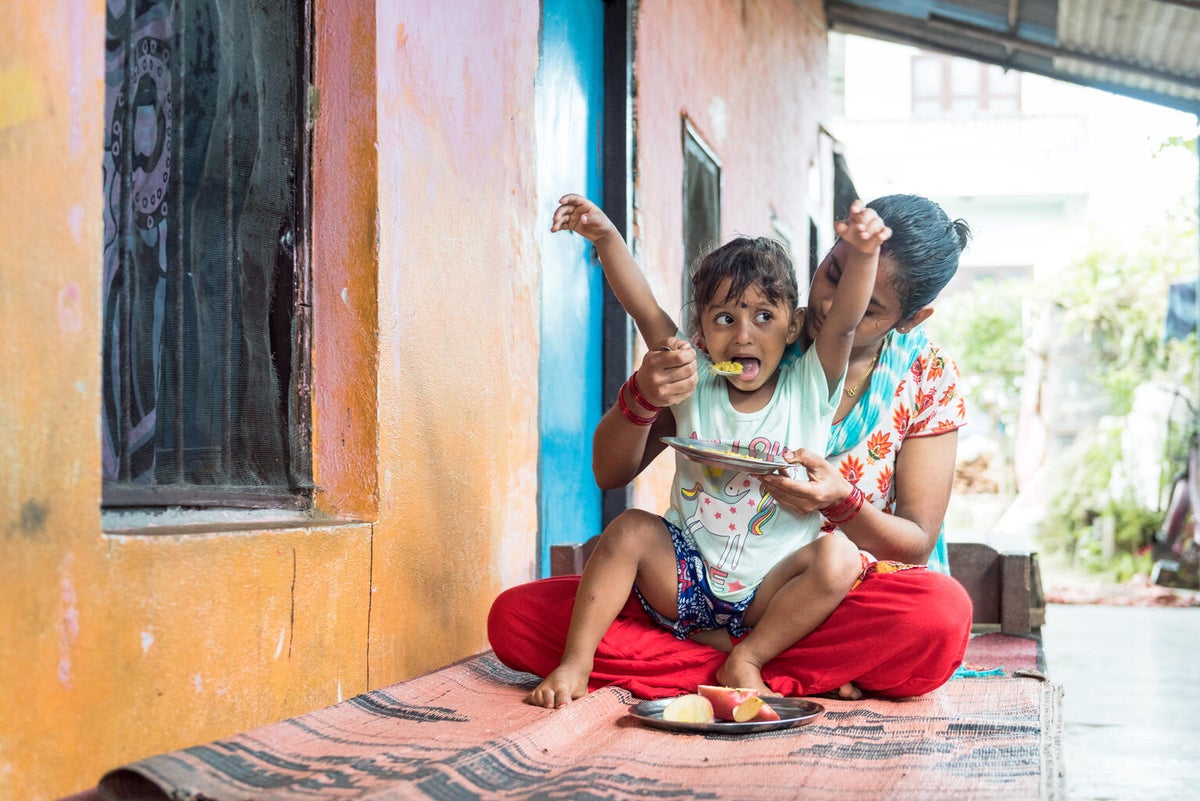
You can play your part in supporting parents and children to access nutritional rehabilitation homes that will bring back the joy and energy to families like Girisha’s. Your Global Parent monthly gift can provide life-saving support to children with nutritional needs.
By becoming a Global Parent, you're supporting vulnerable children no matter where they live, providing vital medicine, clean water, food and school supplies. We’ll keep you up to date with how your generous support is being put to work to make a huge difference to children everywhere. With your donation, millions of children receive much needed help.
Related articles
Stay up-to-date on UNICEF's work in Australia and around the world



